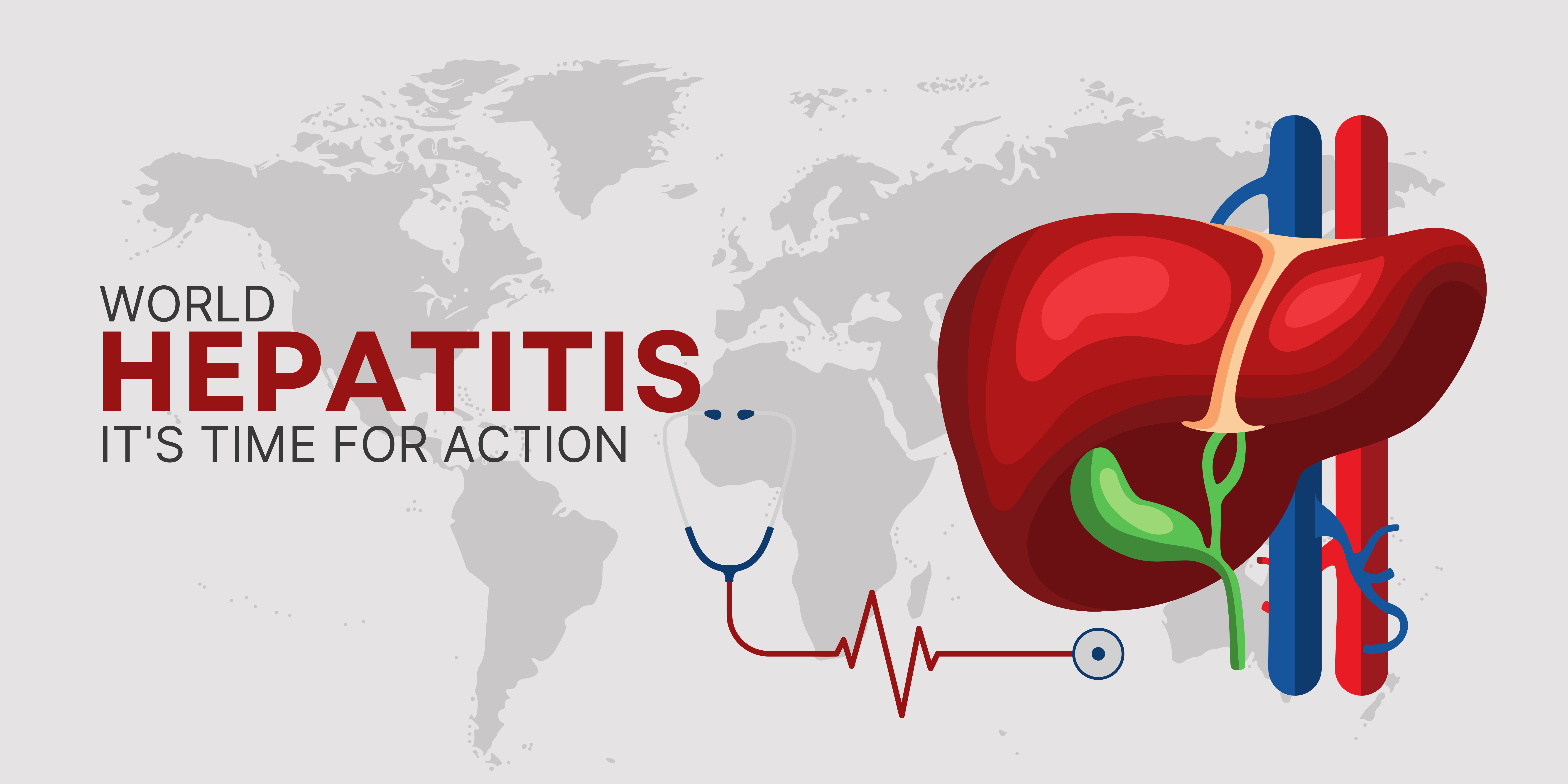
Every 30 seconds, a person dies from a hepatitis-related illness, highlighting the urgent need for better prevention, diagnosis, and treatment strategies. Hepatitis, characterized by inflammation of the liver, can severely affect liver function and has a devastating impact on millions of lives worldwide. Each year, on July 28th, the global community observes World Hepatitis Day to raise awareness about viral hepatitis and drive action to eliminate this silent epidemic. This year’s theme, “It’s Time for Action,” emphasizes the critical need to combat hepatitis and improve health outcomes globally. Now more than ever, it’s essential to unite in this fight to save lives and foster a healthier future.
Why “It’s Time for Action”
The theme “It’s Time for Action” is a clarion call to governments, healthcare providers, and communities to accelerate efforts towards the elimination of hepatitis as a public health threat by 2030, a goal set by the World Health Organization. Here is why urgent action is necessary:
 Preventing New Infections: Implementing comprehensive prevention programs is crucial to reduce the incidence of hepatitis. This includes increasing vaccination coverage for Hepatitis B and ensuring access to clean water and safe food to prevent Hepatitis A and E.
Preventing New Infections: Implementing comprehensive prevention programs is crucial to reduce the incidence of hepatitis. This includes increasing vaccination coverage for Hepatitis B and ensuring access to clean water and safe food to prevent Hepatitis A and E.
 Increasing Access to Testing and Treatment: A significant number of people living with hepatitis are unaware of their status, and many lack access to effective treatment. Expanding testing services and making antiviral treatments widely available and affordable are critical steps in addressing this issue
Increasing Access to Testing and Treatment: A significant number of people living with hepatitis are unaware of their status, and many lack access to effective treatment. Expanding testing services and making antiviral treatments widely available and affordable are critical steps in addressing this issue

Raising Awareness and Reducing Stigma: Many people with hepatitis face discrimination and stigma, which can discourage them from seeking care. Public education campaigns can play a crucial role in dispelling myths and promoting understanding.
 Improving Surveillance and Data Collection: Accurate data is vital for understanding the scope of the hepatitis epidemic and tailoring interventions accordingly. Countries need to invest in robust surveillance systems to track progress and identify gaps in their response efforts.
Improving Surveillance and Data Collection: Accurate data is vital for understanding the scope of the hepatitis epidemic and tailoring interventions accordingly. Countries need to invest in robust surveillance systems to track progress and identify gaps in their response efforts.
 Integrating Hepatitis Services with Other Health Programs: Integrating hepatitis services with broader healthcare initiatives, such as HIV and maternal health programs, can improve access and efficiency, leading to better health outcomes.
Integrating Hepatitis Services with Other Health Programs: Integrating hepatitis services with broader healthcare initiatives, such as HIV and maternal health programs, can improve access and efficiency, leading to better health outcomes.
Taking Action: Steps We Can All Take
While governments and health organizations play a pivotal role, individuals can also contribute to the fight against hepatitis. Here are some steps you can take:
 Get Vaccinated: Ensure you and your family are vaccinated against Hepatitis A and B. Vaccination is a powerful tool in preventing infection and controlling the spread of the virus.
Get Vaccinated: Ensure you and your family are vaccinated against Hepatitis A and B. Vaccination is a powerful tool in preventing infection and controlling the spread of the virus.
 Practice Safe Hygiene: Wash your hands frequently, especially before eating or preparing food, to prevent the spread of Hepatitis A and E.
Practice Safe Hygiene: Wash your hands frequently, especially before eating or preparing food, to prevent the spread of Hepatitis A and E.
 Use Safe Practices: If you use needles for any reason, make sure they are sterile. Avoid sharing personal items like razors or toothbrushes that might be contaminated with blood.
Use Safe Practices: If you use needles for any reason, make sure they are sterile. Avoid sharing personal items like razors or toothbrushes that might be contaminated with blood.
 Get Tested: If you belong to a high-risk group, such as healthcare workers and have increased risk factors, get tested for hepatitis and seek medical advice.
Get Tested: If you belong to a high-risk group, such as healthcare workers and have increased risk factors, get tested for hepatitis and seek medical advice.
 Spread Awareness: Share information about hepatitis on social media, in community groups, or during gatherings. Knowledge is a powerful tool in combating stigma and encouraging people to seek care.
Spread Awareness: Share information about hepatitis on social media, in community groups, or during gatherings. Knowledge is a powerful tool in combating stigma and encouraging people to seek care.
World Hepatitis Day serves as a reminder of the critical work that remains in the fight against viral hepatitis. With the theme “It’s Time for Action,” this year calls for increased efforts, collaboration, and dedication to achieving a world free from the burden of hepatitis. Whether through individual actions or global initiatives, each step taken can contribute to making hepatitis elimination a reality.
Let us seize the moment and make a difference. It’s time for action, and the time is now.












